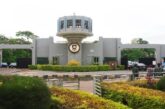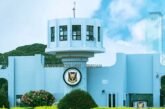
The more they “Japa” the weaker the Naira
Adewale Segun (who insists on not being referred to by his real name) finally had his prayers answered, he had been admitted into the University of Southampton in the United Kingdom.
Finally, he gets to join the legion of Nigerians who “japa” for a better life abroad.
However, securing admission was just the first of many hurdles he had to scale before landing in the United Kingdom. Top on that list is being able to pay his school fees upfront, in hard currency.
For Adewale, obtaining the necessary foreign exchange to cover all his travel expenses became the initial obstacle.
After receiving his admission offer, he had only a week to pay half of the £18,520 school fees before obtaining the Confirmation of Acceptance for Studies (CAS) required for the visa application. This amounted to approximately £9,300.
Unfortunately, the process of obtaining the required foreign currency through official channels proved time-consuming, so he resorted to sourcing pounds from the black market at an exchange rate of about N800/£1 at the time.
- “After I was offered admission by the University of Southampton, I was given a week to pay half of the £18,520 school fees before I could get the Confirmation of Acceptance for Studies (CAS) for the visa, which amounted to about £9,300.
- I filled the Form A in my bank and the time they gave me was 3 weeks, which would not meet up with the deadline. I had to spend extra millions of naira to source for pounds at the black market, which was around N800/£1 then,”he said.
In addition to the school fees, Adewale had to pay the UK student visa fee, usually around £363, and the Immigration Health Surcharge (IHS) fee of about £705.
During the visa application process, these amounts were converted to dollars, approximately $480 (now N800/$1) for the visa fee and around $930 for the IHS fee.
The IHS fee is mandatory for immigrants planning to stay in the UK for more than six months, including student visa holders and the amount varies based on the length of the course.
Adewale’s experience reflects the challenges faced by many Nigerians seeking to study abroad through the study route.
From obtaining foreign exchange to paying school fees, and health insurance, and providing proof of funds, the process requires determination and resourcefulness. Financing the journey abroad is a major hurdle for these students
The demand for foreign exchange by Nigerians intending to study abroad puts significant pressure on the country’s exchange rate regime, exacerbating the scarcity of forex.
Nigerian banks, which are also grappling with meeting the forex needs of their corporate customers, find it challenging to fulfill the requests for forex from individuals seeking to study abroad through the Form A process.
Despite recent efforts by the government to float the naira, the scarcity of forex has caused the dollar exchange rate to surge to N800 at the Investors’ and Exporters’ (I&E) window, and the pound now exchanges at over N1,000 in the parallel market.
The rising trend of Nigerians pursuing education abroad is evident in the numbers. According to data from the Central Bank of Nigeria (CBN), Nigerians spent over $609 million on foreign education in 2022.
The British Government reported a significant increase in the number of Nigerians granted study visas for the UK, with a 768.7% rise to 59,053 in 2022, the highest in four years compared to 6,798 in 2019.
Given the prevailing economic and social conditions in Nigeria, more Nigerians are expected to venture to the UK and other foreign countries under the guise of studying abroad.
Another Nigerian student in Canada, who prefers to be mentioned as “Adeolu”, considers himself fortunate as he was able to pay his school fees through forex obtained from the bank.
However, he still had to resort to the black market to acquire dollars for other fees. Unlike UK schools, Canadian institutions require applicants to pay for their applications, with fees ranging from $100 and above.
- “To apply for admission, I had to search for sources of dollars. It would have been easier if Nigerian banks allowed international transactions on naira debit cards. But in the absence of that, I had to purchase dollars from the black market and find a way to use them electronically for my application,” Adeolu explained.
- “Fortunately, I managed to obtain Personal Travel Allowance (PTA) from my bank to pay for the school fees after I received admission. However, it was no easy task, as I still had to buy additional dollars from the black market to settle other expenses before traveling.” He concluded
While many Nigerians are currently in the process of applying for study visas, those who have successfully navigated the rigorous procedures understand that it is a challenging endeavor, particularly in terms of financing.
From obtaining foreign exchange to covering various expenses such as school fees, health insurance, and proof of funds, moving abroad through the study route requires considerable determination and resilience.
Forex scarcity bites harder in Nigeria
Similar to the experiences of Adewale and Ola, a significant number of Nigerians planning to relocate abroad are persistently searching for foreign exchange through various means to fund their visa and other essential payments.
This growing demand for forex places considerable strain on the country’s exchange rate regime, resulting in banks expressing concerns about the scarcity of forex.
The consequence of this heightened demand for forex is reflected in the exchange rates. The dollar rate has surged to N800 at the Investors’ and Exporters’ (I&E) window, while the pound now exchanges at over N1,000, despite the recent decision by the government to float the naira.
An anonymous Nigerian bank official, who spoke to Nairametrics, revealed that their bank receives numerous requests for forex from Nigerians intending to study abroad through Form A. However, the official noted that the bank struggles to fulfill many of these requests due to the challenges of meeting the forex needs of its corporate customers.
Remarkably, some of the Form A requests were submitted even before the recent floating of the naira, yet the bank has not been able to address them.
This highlights the ongoing difficulty in meeting the demands for forex, both from individuals seeking to study abroad and other sectors of the economy.
Exorbitant school & Visa fees
Over the years, educational institutions in countries like the UK, US, Canada, and others, which are popular destinations for Nigerians, have consistently raised their tuition fees to meet the growing demand.
However, this increase has not deterred many Nigerians from pursuing their dream of studying abroad.
In the 2021/22 academic year, annual tuition fees for international undergraduate students in the UK ranged from £11,400 (US $14,130) to as much as £32,081 (US $39,770).
In Canada, the cost of tuition varies depending on the program and institution, with an average of around $36,100 per year for international undergraduate students and $21,100 for graduate international students, according to Statistics Canada in 2022.
Meanwhile, studying in the United States entails spending between $25,000 and $45,000 per year on tuition alone, in addition to other school and living expenses.
A recent report by SBM Intelligence highlighted the significant financial contribution of Nigerian students and their dependents to the UK economy. In 2021, they contributed an estimated sum of £1.93 billion.
A breakdown of this total reveals that school fees accounted for about 35.36% (equivalent to £680.6 million) of the spending.
In addition to school fees, Nigerian immigrants also pay substantial amounts for services such as national insurance (£151.3 million), the National Health Service (NHS) (£54.4 million), and visa fees (£41.7 million) to the UK government.
It is worth noting that the benefits are not limited to foreign educational institutions alone. The governments of host countries also profit from the fees paid by intending immigrants for visas, health services, and other consular services, all of which are typically paid in dollars.
Embassies of these countries rake in millions of dollars each year through visa fees and payments for consular services.
For instance, the UK government recently announced an increase in the cost of all categories of visas, with study visas experiencing the highest increment of 20%
Nigerians to pay more for UK Visa
Meanwhile, going to the UK either for a visit or study will now cost a few extra pounds as the UK Prime Minister, Rishi Sunak, announced that the surcharge paid for the state-funded national health service (NHS) by visa applicants from around the world will “increase significantly”.
The British leader, who was under pressure to accept the recommendation of an independent review of pay for teachers, police, junior doctors, and other public sector workers, confirmed a hike between 15% (across various fees paid by migrants, including the cost of study visas, ILR, Settlement status) and others which is to increase by 20%.
- “If we’re going to prioritize paying public sector workers more, that money has to come from somewhere else because I’m not prepared to put up people’s taxes and I don’t think it would be responsible or right to borrow more because that would just make inflation worse,”Sunak said.
- “So, what we have done are two things to find this money. The first is, we are going to increase the charges that we have for migrants who are coming to this country when they apply for visas and indeed something called the immigration health surcharge (IHS), which is the levy that they pay to access the NHS.
All of those fees are going to go up and that will raise over £1 billion. So, across the board visa application fees are going to go up significantly and similarly for the HIS,” Sunak said.
Credit: Nairametric




